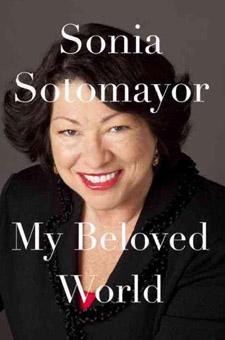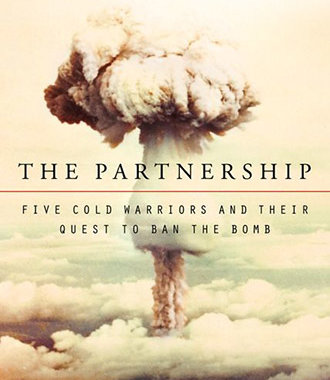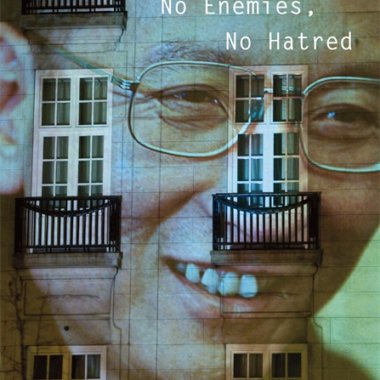“There are memories for which we can live more than a life time.”
—Brother of Rana Abdulfattah
Photographs over the past several years have shown migrants and refugees crossing the Mediterranean Sea, some of them dying as they flee war, poverty, drought, and authoritarian regimes. The headlines and photos may have made some readers immune to their plight, even angry, but they might think again if they read Tiger and Clay – Syria Fragments by the poet Rana Abdulfattah. Once engaged, the reader soon discovers that the second half of the title—Syria Fragments—bears witness to the harsh realities of Abdulfattah’s exile in Turkey. Not only is she separated from the homeland in which she grew up, but she also experiences a fragmentation that seriously compromises any sense of identity and wholeness. In Tiger and Clay – Syria Fragments—part memoir and reminiscence, part meditation and critique—Abdulfattah dispenses with any attempt to sugarcoat her journey. Abdulfattah will not return to Syria.
There are some facts that redound to a more complete understanding of who Abdulfattah is and why, after six years of living in Turkey, she must make Turkey her home. She writes the “fragments” that comprise Tiger and Clay in 2013, two years after the uprising in Syria (March 2011) had mutated into civil war. She lives in an apartment in Istanbul, and her Armenian landlord takes Turkish sweets to her when she visits at Eid al-Fitr. She is almost twenty-eight years old and is a graduate student at the university at Beyazit. Without a resident permit for two years, she must register with the Turkish Immigration Management Directorate or be classified as an “irregular resident.” She does not like this term; neither does she like to be known as or called a “migrant,” or a “refugee.” She prefers human being. She is in a relationship with her “beloved” who gives her peace and makes her feel at home. Toward the end of Tiger and Clay – Syria Fragments, she mentions she will turn thirty in a year, indicating that the writing of this journey of exile must have occurred over a year or year and a half. The last time she visited Syria was September 19, 2011.
Bidden or unbidden, Syria is a constant presence in her life: physically, mentally, emotionally, and spiritually. She breaks out spontaneously in Arabic at three-year-old Lilian’s birthday party as the family sings the song in English, or conversely, she writes in English because it is easier to submerge her Syrian legacy and consciousness when she types. This duality of existence—a schizophrenic consciousness—punctures the normalcy she strives to attain in her daily life.
The difficulty, of course, lies not only in this persistent double consciousness but it also lives in the different “space-time zones” that she inhabits, as does Niyaz, another woman like herself, forced into exile. Abdulfattah’s meditation on the journey Niyaz takes elucidates her own. Niyaz, too, moves between different space-time zones. For Niyaz, it is easier to adapt to these zones if Syria is the anchor, “the grounding memory.” When the anchor doesn’t hold, the movement between the space-time zones is no longer an issue of adaptation; it becomes the imperative to recreate the anchor “within your body, memory, and soul” wherever you are. For both women, moving between the space-time zones needs—no, requires—a “trans-spatial memory” that must be the first anchor, which in their case is moored in Syria. And yet, “this schizophrenia of being in the middle of two time-zones; two lives” exhausts Abdulfatttah. She is not certain she will make it through this double life she is forced to lead.
The war in Syria comes at her from different directions: parents, siblings, friends, NGOs, the media. She hears “the horrible stories of home, on the verges and edges of life and death.” She doesn’t recognize the country she lived in for twenty-seven years, her Syria “in pain and uncertainty.” She watches television, sees the country metamorphose into death and destruction. To rethink its existence without falling into despair is an act of will and imagination. “Otherwise,” she writes,
There is no otherwise,
It is who we are.
Like silence
lined up in mute patterns,
constant,
in our timeless agony
and longing for an
everlasting change
an exit where there is no return,
where silence is peace
and muteness is a language.
Her poem is prescient, given that she wrote it before more than 500,000 have died during the six years of the Syrian civil war.
Abdulfattah’s decision to remain in Turkey seems to have caused friction between her and her family. She feels guilty for her life in Istanbul. Sometimes, when she gets too close to her family the guilt is unbearable, and “they shatter this little fucking paradise that I have in this corner of Istanbul. Stories of unsettlement, of the peace gone out of the gates of Syria to return God knows when and where. . . . I tell myself go away, run away to Europe, to another fake paradise. I tell myself go build another life far away with your beloved, so that my Syrian folk won’t sweep my little paradise again.”
Such defensiveness occurs rarely in Tiger and Clay – Syria Fragments. Still, the struggle is true, the pain deep, and the remorse real. The confrontation forces her to recognize her bifurcated life at the “intersection of war and peace.” She cannot give in to such thinking, however. To stay whole she reminds herself that exile is a “race against time.” She must accept the guilt and the reality that, as her brother tells her, Syria is not theirs anymore: “It is for those who are living in it regardless of the immense difficulty of life under war.” She must internalize this truth, and literally fight to stay present as she builds a new life in Turkey. To do so is an act of endurance, imagination, and strength—to not be suffocated by the horrors of the war. She does not deny her guilt and pain; neither does she deny the suffering of the thousands in Syria, her status in Turkey, the shame of her so-called corner of paradise. To be aware of, recognize, and accept the place where she finds herself, is a creative act, a revelation of significance:
I am physically here and I am a human being who has a memory card
in the universe. I have made home a divine place to keep me
grounded. Home, the load of memory, oppression, freedom, bravery,
war, and humanity at its best. I am home since I am the memory . . .
I grab it and unfold it until I become in harmony with the universe.
It seems that Abdulfattah’s beloved helps her “to not be suffocated by the horrors of the war.” Unnamed in Tiger and Clay – Syria Fragments, her beloved is very much present and matters to her a great deal. The beloved is her home, her lodge, her peace, her heaven. We cannot know for sure if the “sweetheart” in Abdulfattah love poem “Black tea, mint and jazz,” and the “beloved” in Tiger and Clay – Syria Fragments are one and the same, but we can linger inside the poem’s tenderness regardless.
Black tea, mint and jazz
Is that mint, sweetheart?
Your fresh intoxicating mint,
Is that your cup of heavy black tea?
Bought in a hot afternoon,
while jazz is played loudly and slowly
like the drops of sweat on my foreheadIf there should be a day
where I would feel sober drinking black tea with fresh mint.
If there would be a day
while I would sit in a hot afternoon,
listening to jazz played loudly and slowly
without stretching unknown and obscured,
sweetened and vulnerable,
not unhappy, not exactly intoxicated,
but fixed sweetheart,
fixed in your black tea
your fresh mint,
your jazz,
Loudly,
Slowly,
Silently.
The title of Tiger and Clay – Syria Fragments puzzles, but there is a sentence in the book that helps to deconstruct the meaning: “In the clay, there is a tiger and the problem is neither in the question nor is in the text, it is in interpretation.” The word “and” in the title joins “tiger” and “clay” in a unity, thus becoming a metaphor to interpret.
Clues can be found in the text. When Abdulfattah visits Lilian and her family to celebrate her third birthday, she waits anxiously for the feast that is spread before her, “fluttering like a butterfly waiting to be initiated into the fire.” Along with the feasting comes “the fire of initiation which kills the butterfly . . . .” The fire of initiation is not the fire of the tiger or of the feast, but rather the fire of the Syrian war—of death and destruction.
Clues are also in the words surrounding the word “clay” in the following sentences: “We are made of clay; we are made to survive! Those who commit suicide are the ones who cannot handle their clay!” Also, these sentences provide context: “You cannot fight for anyone. There is no victim. You can neither fight for me nor for my mother. The clay knows best how to handle its nature.”
If the title of Tiger and Clay – Syria Fragments is a metaphorical conundrum, it isn’t difficult to find the simplicity in its complexity. You can’t be human without the synthesis of both tiger and clay, and surely, you can’t act in the world without the fire of the tiger. Tiger and clay together animate the imagination and creative spirit of Rana Abdulfattah’s journey out of exile and into human being-ness.
Editor’s Note: Tiger and Clay – Syria Fragments by Rana Abdulfattah will be available from Palewell Press next month.



2 comments
So glad you brought this book to my attention. And its author. I was very interested in her interview and look forward to getting the book when it comes available. Thank you
Sandy!
the book is now available on amazon https://www.amazon.com/Tiger-Clay-Fragments-Rana-Abdulfattah/dp/0995535124